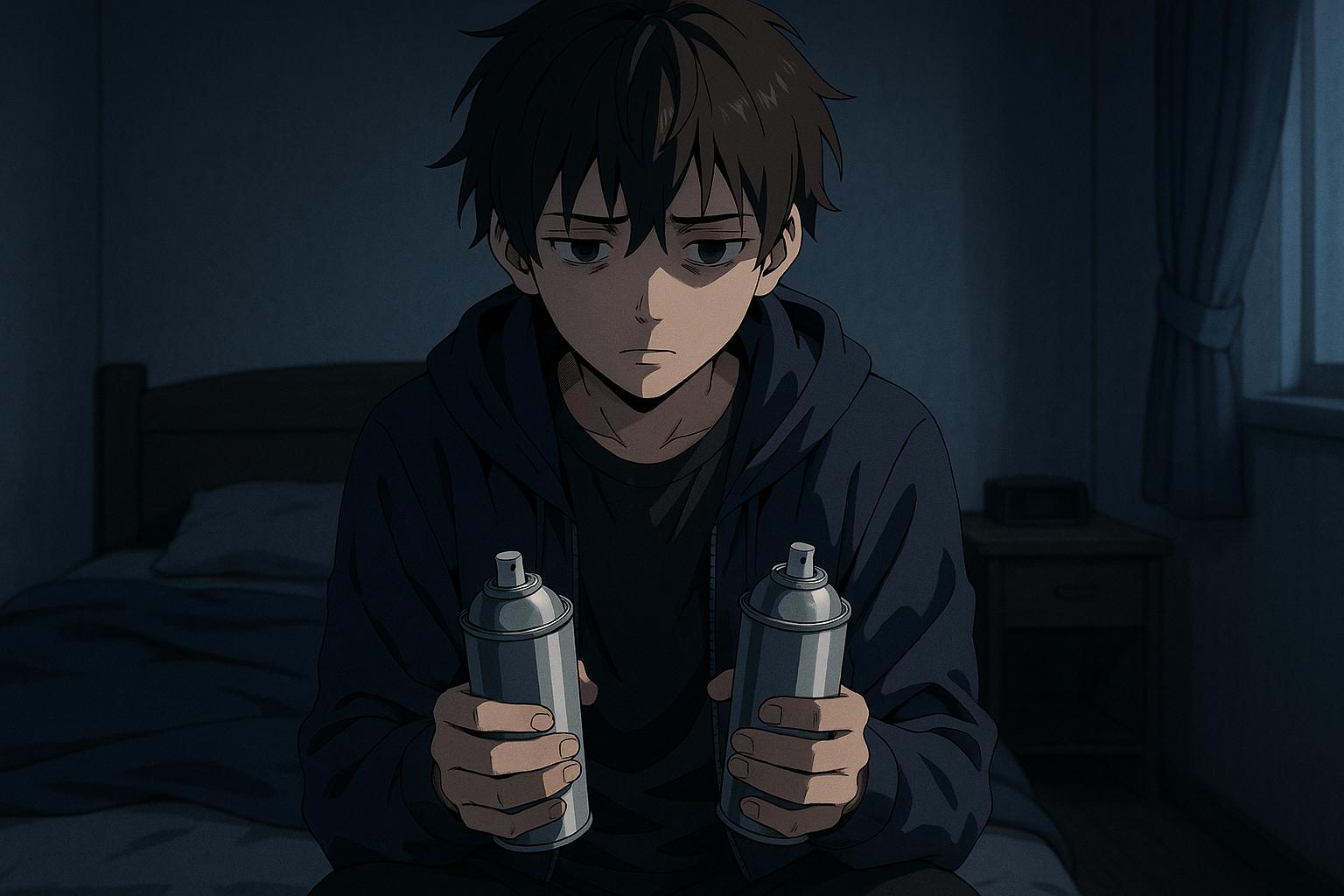Nicky Lowther's tragic death at just 13 years old has highlighted the alarming rise of 'chroming' among teenagers. Discovered unconscious in his home in Canterbury, Kent, on June 27 last year, Nicky succumbed to the effects of inhaling aerosol substances, a practice that has become increasingly prevalent particularly via social media platforms. His aunt, Toni Lowther, has since emerged as a voice for awareness, calling for parents to engage in frank discussions with their children about the dangers of this life-threatening trend.
Toni learned about Nicky's inhalation of aerosols only after arriving at the hospital following his death. "We found out he'd been inhaling aerosols but I didn't know the severity of it," she recounted. The discovery of 12 aerosol cans in his bedroom suggested a perilous routine that can lead to grave health consequences, a sentiment echoed by experts who warn that inhalants can indeed be fatal. The practice, colloquially known as 'huffing', entails inhaling the toxic chemicals found in everyday products to achieve a euphoric high, yet it carries substantial risks, including sudden death from cardiac arrest—a chilling outcome referred to as 'sudden sniffing death syndrome'.
The trend has gained traction particularly among young people, with instances of participants filming their inhalation experiences and sharing these via social media. In a related incident, an 11-year-old boy in the UK died after attempting this practice during a sleepover, while another case involved a 13-year-old girl in Australia who was largely unresponsive after similar inhalation. These events paint a concerning picture of a generational issue, driven partly by the allure of online validation.
Toni, deeply impacted by her nephew's passing, has launched a petition aimed at restricting the sale of aerosol products to minors. "Nicky's death was so preventable," she lamented, highlighting the missed milestones that his family will never witness, from graduation to marriage. The petition has garnered over 5,000 signatures, demonstrating a community rallying for change in the wake of tragedy.
Universally, experts are calling for heightened education surrounding the dangers of inhalants. Research indicates that inhalant abuse can inflict immediate health issues, including dizziness and cognitive impairment, with long-lasting repercussions for young users. Furthermore, as per various health sources, the anticipation for alluring outcomes can lead children to believe that these practices are safe and benign, an illusion that needs to be dispelled urgently.
Adding to the urgency, advocacy groups underscore the necessity for preventive measures to combat the normalisation of such behaviours. Community awareness campaigns and parental engagement are vital to ensuring children understand the risks they face when navigating social pressures that glorify harmful behaviour.
As Nicky's story reverberates through the community, it serves as a poignant reminder of the need for vigilance and proactive conversations about the perils of inhalant use. "Kids need to understand how dangerous it is," said Toni, urging her peers to initiate discussions about safety in what they perceive as harmless activities. The stark reality is that education and open dialogue are crucial to preventing further tragedies and protecting vulnerable young lives.
Reference Map
- Paragraphs 1, 2, 3, 4, 5
- Paragraphs 3, 5
- Paragraphs 4, 5
- Paragraph 4
- Paragraphs 4, 5
- Paragraph 6
- Paragraph 6
Source: Noah Wire Services
